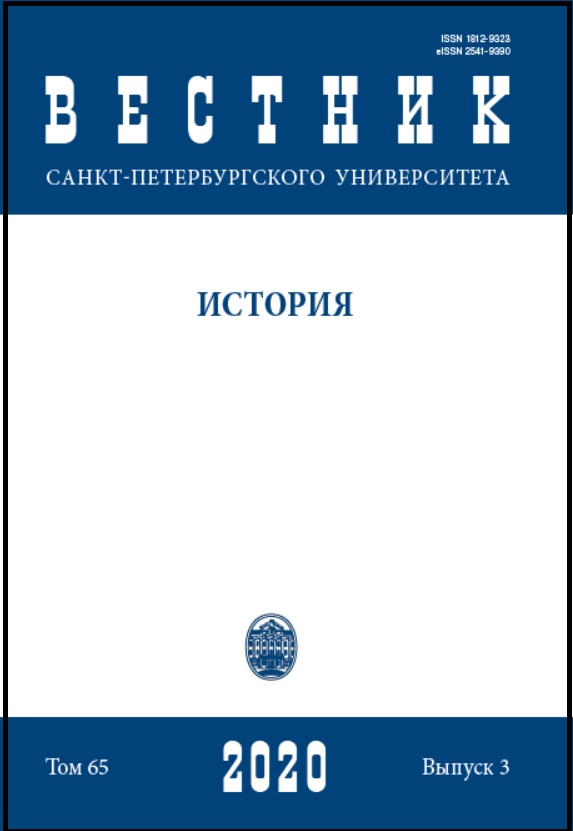Clinical Trials of Rhodiola rosea in Tomsk in the Late Soviet Period
DOI:
https://doi.org/10.21638/11701/spbu02.2020.307Abstract
Rhodiola rosea is a Siberian medicinal plant possessing qualities of a central nervous system stimulant that has been traditionally used in the folk medicine of the indigenous peoples in Siberia. Between the 1960s and the 1980s, the plant has been intensively studied in the scientific laboratories of Tomsk. The study of physico-chemical qualities of the plant and its effects on humans was initially carried out in the Tomsk Medical Institute (TMI) by a large research group headed by A. S. Saratikov and E. A. Krasnov. Following a series of animal studies in the early 1960s, Saratikov moved to enlist human volunteers from TMI students and stuff and studied the effects of the plant on concentration and auto-suggestion. These trials were later expanded and a number of medical institutions in Tomsk incorporated them into their research programs, seemingly hailing Rhodiola rosea as a potential all-curing miracle drug for the overworked and stressed modern self. (Interestingly enough, there has recently been a renewed interest in the plant in the West that has corroborated a number of Soviet findings). At the same time, research into the history of Rhodiola rosea trials also highlights both numerous ethically problematic issues in the treatment of research participants as well as unexpected divergences from the officially prescribed Soviet clinical trials practices. Using examples from numerous published scientific studies and corroborating them with materials from oral history interviews with researchers and study participants, this talk explores the local idiosyncrasies that shaped Soviet clinical trials on the ground.
Keywords:
Rhodiola rosea, A. S. Saratikov, Tomsk pharmacological research school, History of medicine in Tomsk, Bioethics
Downloads
Downloads
Published
How to Cite
Issue
Section
License
Articles of "Vestnik of Saint Petersburg University. History" are open access distributed under the terms of the License Agreement with Saint Petersburg State University, which permits to the authors unrestricted distribution and self-archiving free of charge.





